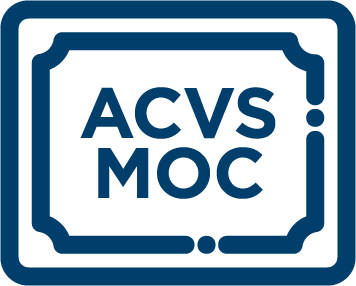
Surgical Trauma and Traumatic Surgery
Naturally occurring trauma, as well as the trauma resulting from invasive surgical procedures, result in systemic responses that follow similar physiologic pathways and affect patient outcomes. In this context, surgical goals include not only correcting the original traumatic injury but also minimizing the “second hit” resulting from the applied surgical intervention. During this seminar, speakers discuss the pathophysiology of both naturally occurring and surgically inflicted trauma, and optimal timing of surgical intervention in trauma management. Case-based discussions present the current standards of trauma management, and the seminar culminates in a fast-paced morbidity and mortality rounds centered on surgical trauma.
Agenda
Galina Hayes, BVSc, PhD, DACVS (Small Animal), DACVECC, and Kelly Hall, DVM, MS, DACVECC, facilitates the following presentations:
- Kelly Hall, DVM, MS, DACVECC: Trauma: Defining the Problem and What Are We Doing About It
- Catriona MacPhail, DVM, PhD, DACVS: Surgical Timing in Trauma: The Veterinary Perspective
- Julie Dunn, MD, MS, FACS: Surgical Timing in Trauma: The Human Patient Perspective
- Galina Hayes, BVSc, PhD, DACVS (Small Animal), DACVECC: Pathophysiology of Naturally Occurring and Surgical Trauma: Minimizing the “Second Hit”
- Tom Edwards, DVM, MS, DACVECC: Coagulopathy in Trauma: Antifibrinolytics and Beyond
- Panel Discussion: The Craziest Trauma Cases Ever and What We Did to Fix Them
- Panel Discussion: Morbidity and Mortality Rounds: Naturally Occurring and Surgical Trauma
CE Credit
RACE Program #20-1241712 is approved for 5.25 hours of continuing education credits in jurisdictions which recognize the American Association of Veterinary State Boards’ (AAVSB) Registry of Approved Continuing Education (RACE). However, participants should be aware that some boards have limitations on the number of hours accepted in certain categories and/or restrictions on certain methods of delivery of continuing education. RACE is approved through September 6, 2026.
 Webinar Length: 5 hours 15 minutes
Webinar Length: 5 hours 15 minutes  CE Credits: 5.25 credits
CE Credits: 5.25 credits  MOC: 5.25 points
MOC: 5.25 points
Rates per individual webinar (live and on-demand)
ACVS/ECVS Diplomate/Emeritus Diplomate $289
ACVS/ECVS Resident $79
Veterinary/Other Professional $368
Student/Intern/Technician $158
Julie Dunn, MD, MS, FACS
Medical Director of Trauma Research
Medical Center of the Rockies
Dr. Dunn is a trauma and general surgeon at Medical Center of the Rockies in Loveland, CO, a level I trauma center, since 2011. Prior to that, she served as the Medical Director of the Level I Trauma Center in Johnson City, TN, where she was a Professor at East Tennessee State University. She was a long-time member of the American College of Surgeons Committee on Trauma (ACS-COT) and serves on the Advanced Trauma Life Support (ATLS) subcommittee. She currently is the content lead for the Team Dynamics Chapter for the upcoming 11th Edition ATLS Course. She served as Vice Chair and Chair of Tennessee COT and is the past chair of the Colorado COT. She recently completed two terms as the NCOT Region 8 Chief. She has extensive experience caring for injured patients and has given multiple talks locally, regionally, and nationally. Her research encompasses the inflammation of trauma, a host of multi-institutional trial endeavors, and has an ongoing interest in translational medicine and care of the injured patient across species. She works closely with members of the Veterinary COT to promulgate the Veterinary ATLS.
Tom Edwards, DVM, MS, DACVECC
Associate Professor/Scientific Lead
Texas A&M University; Institute of Surgical Research
Dr. Edwards completed ROTC and earned his bachelor's degree from the University of Illinois. He was commissioned as a 2nd lieutenant in the army and served as an infantry and signal corps officer for 5 years. After this stint in the military, he attended the University of Georgia where he earned his Doctorate of Veterinary Medicine degree. He then reentered the army and completed a one-year rotating internship at the Department of Defense Military Working Dog Center at Lackaland Air Force Base, TX. He went on to serve in a number of assignments in Arizona and Georgia as well as a deployment with the 10th Mountain Division to Iraq as the Division’s Agricultural advisor and Veterinarian. He returned to the University of Georgia to complete a combined masters degree and a residency in veterinary emergency and critical care medicine. Upon completion of his training, he became a diplomate of the American College of Veterinary Emergency and Critical Care and subsequently led the busiest Veterinary Treatment Facility in the Department of Defense based in Okinawa, Japan. He then served at the US Army Institute of Surgical Research as both the Deputy Director of Research as well as the Research Support Division Chief. During this time, he conducted research into areas vital to Military Working Dogs including coagulation abnormalities, transfusion medicine, shock, trauma and resuscitation. He retired from the army and worked for two years at BluePearl Veterinary Specialists in San Antonio as both a critcalist and the ER Service Lead. He is now an associate professor at Texas A&M University with a dual appointment as the Hemorrhage Control and Vascular Dysfunction department scientific lead at the Institute of Surgical Research in San Antonio, TX.
Kelly Hall, DVM, MS, DACVECC (Moderator)
Associate Professor, Critical Care Services
Colorado State University
Dr. Hall has a passion for improving trauma patient care through collaborative clinical and translational research. She was a faculty member at the University of Minnesota for 14 years where she also earned her DVM, Emergency and Critical Care training for board certification and master’s in Clinical Research. Dr. Hall is honored and proud to be a part of the ACVECC Veterinary Committee on Trauma (VetCOT) with its multi-disciplinary and multi-institutional approach to improve trauma patient care. Dr. Hall joined the Critical Care Services team at Colorado State University in 2019 and is enjoying being part of a team striving to contribute to and help advance all we do in the critical care space. Primary drivers of Dr. Hall’s philosophy, whether on the clinic floor, on the basketball court, in the classroom or advancing research collaborations include Angela Duckworth’s research on “grit”, Carol Dweck’s research on “growth mindset” and John Wooden’s “pyramid of success”.
Galina Hayes, BVSc, PhD, DACVS (Small Animal), DACVECC (Moderator)
Associate Professor
Cornell University
Dr. Hayes graduated from Bristol University in 1998 and entered mixed practice in Carmarthen, Wales, before obtaining her RCVS small animal surgery certificate and pursuing an internship in Alberta, Canada. After a period working as an ER doctor she completed a residency in small animal emergency in critical care, a PhD in Epidemiology, and a residency in small animal surgery at the Ontario Veterinary College, Guelph, Ontario. She then worked in private practice in Pennsylvania before undertaking her current position as surgery faculty at Cornell University. Her professional interests include study design and data modeling, disease scoring and error analysis, and minimally invasive surgical techniques. She is married with two children, and enjoys fly-fishing and gardening in her spare time.
Catriona MacPhail, DVM, PhD, DACVS
Professor
Colorado State University
Dr. MacPhail is a Professor of Small Animal Surgery at Colorado State University (CSU) Veterinary Teaching Hospital. After receiving her veterinary degree from Texas A&M University, Dr. MacPhail completed a rotating internship, surgical residency, soft tissue & surgical oncology fellowship, and PhD all at CSU. Dr. MacPhail has been on faculty at CSU since 2004. She is a Diplomate of the American College of Veterinary Surgeons (ACVS), and ACVS Founding Fellow in Surgical Oncology.
Bryden Stanley, BVMS, MVetSc, DACVS
Emeritus Professor
Michigan State University
Dr. Bryden J. Stanley is a professor of surgery at Michigan State University’s College of Veterinary Medicine. She graduated as a veterinarian from Murdoch University, in Australia in 1982. She was in practice for 2 years, then returned to Murdoch to become a surgical intern in 1985. She followed her internship with a position as Surgical Registrar at the University of Sydney. From 1987 to 1990, Dr. Stanley completed an ACVS Surgery Residency training and Master’s Degree at the University of Saskatchewan, Canada. Following residency, Dr. Stanley was on faculty at the University of Edinburgh in Scotland, and has also worked as a Scientific Communications Manager for Mars Petcare. Dr. Stanley came to Michigan State University in 1998, where she has played an active role in teaching, research and clinical surgery. Stanley’s clinical interests are in all aspects of soft tissue surgery, particularly upper respiratory, wound management and cutaneous reconstructive techniques. Dr. Stanley runs two research labs – in upper respiratory diseases and wound healing for which she runs numerous clinical trials. Her current upper respiratory studies are laryngeal paralysis polyneuropathy in Labradors and Newfoundlands, Norwich terrier upper airway syndrome and the brachycephalic upper airway. Her current wound healing studies are in incisional negative pressure wound therapy, honey-based products, amniotic membranes and ischemic preconditioning. She publishes frequently, has received many teaching awards and lectures widely at a national and international level.


